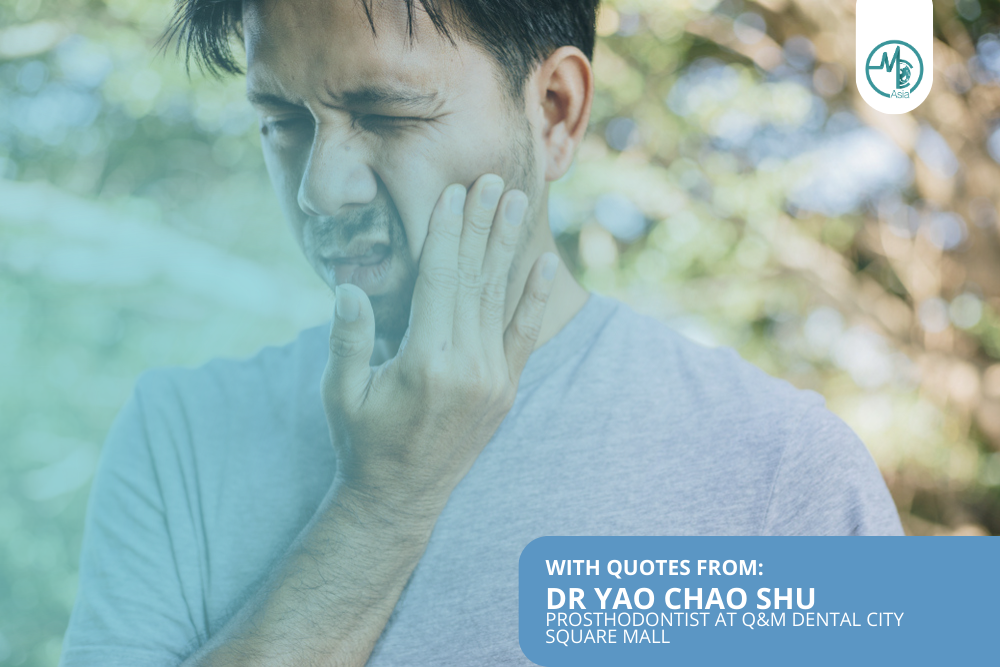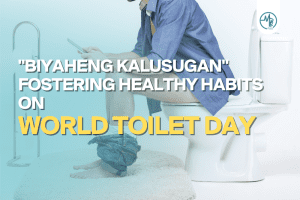An often overlooked issue, jaw health can have a solid and lasting impact on the quality of life for the people it affects. Maintaining good health of the Temporomandibular joint (TMJ) is crucial.
In this article, we discuss TMJ disorders with Dr Yao Chao Shu, prosthodontist at Q&M Dental City Square Mall.
What is TMJ?
TMJ stands for temporomandibular joint. The joint connects your jawbone to your skull, allowing you to open and close your mouth, talk, chew, and yawn. However, disorders can disrupt this harmony, causing pain in your jaw joint and the muscles that control jaw movement.
The TMJ is one of the most complex joints in the body. Every time you speak or eat, you have the TMJ to thank.
TMJ Disorders: A Brief Overview
TMJ disorders, often simply referred to as TMJ, are a group of conditions causing pain and dysfunction in the jaw joint and the muscles responsible for jaw movement. While they can be temporary, in some cases, they might last for many years.
Causes of TMJ Disorders
While the exact cause can be challenging to determine, several factors might contribute to the onset of TMD:
- Injury to the jaw or TMJ: A heavy blow or whiplash can harm the joint.
- Erosion of the disc: The disc that keeps the movement smooth can erode or move out of its proper alignment.
- Arthritis: Just as other joints can be affected by arthritis, so can the TMJ.
- Teeth grinding: This can put pressure on the joint, though not everyone who grinds their teeth develops TMD.
- Stress: Often, this can lead to clenching of the jaw and teeth, putting strain on the TMJ.
Dr Yao Chao Shu, prosthodontist at Q&M Dental City Square Mall states that “Lifestyle stresses are the most common underlying factor for developing TMJ issues. Improper chewing habits, such as the inclination to eat chewy food, might also increase muscle fatigue and joint wear. The uneven bite might also predispose towards developing TMJ issues”
Recognising the Symptoms
TMD can manifest in various ways:
- Pain or tenderness in the face, jaw joint area, neck, shoulders, and around the ear when chewing or speaking.
- Difficulty or discomfort while chewing.
- Aching facial pain.
- Locking of the joint making it difficult to open or close the mouth.
- Clicking, popping, or grating sounds in the jaw joint when opening or closing the mouth. However, if there’s no pain associated with the noise, it’s typically not considered a significant issue.
Seeking Diagnosis and Treatment
If you suspect you might have TMD, your primary care physician or dentist will examine your jaw, check its range of motion, and pinpoint areas of discomfort or pain. They may also use dental X-rays, a CT scan, or MRI to get a detailed view.
Treatment can range from self-care practices and medications to more invasive procedures:
- Self-care: Eating soft foods, applying ice or heat, avoiding extreme jaw movements.
- Medications: Pain relievers, anti-inflammatories, or medications to relax the jaw.
- Therapies: Oral splints or mouth guards, physical therapy, and even counselling to help combat stress.
- Surgical procedures: While reserved for severe cases, some might require arthrocentesis, injections, TMJ arthroscopy, or even open-joint surgery.
The Importance of Early Detection
Like many health conditions, early detection of TMD can make a significant difference in the ease and effectiveness of treatment. Ignoring symptoms can lead to more severe pain, extended periods of discomfort, and even irreversible damage.
Dr Yao added, “The best course of action is to identify the main causative factor and target it accordingly. Current treatment options include patient education and counselling, medications, splint therapy and neuromuscular therapy.”
In Conclusion
TMJ plays a crucial role in our day-to-day lives, and understanding it can make a world of difference when facing related issues. If you suspect you have TMD or are experiencing jaw pain, it’s essential to consult with a healthcare professional. By doing so, you can get ahead of the problem and return to a pain-free daily life.













